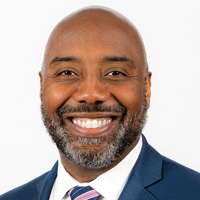Early 401(k) Withdrawals: Benefits, Risks and Alternatives
If you need money now and are thinking about tapping your 401(k) savings, you might want to consider other available options.


As a Kiplinger reader, you’re likely someone who manages their finances thoughtfully and has been saving for retirement in a tax-advantaged plan like a 401(k). You’ve also probably heard that taking cash out of your 401(k) before you’re 59½ is generally inadvisable, given the taxes and penalties on early withdrawals.
But even the most responsible of us can face a financial emergency and have thought about tapping into savings stashed in a 401(k). Maybe you have unexpected medical bills after an accident or hurricane damage to your home. Or maybe you need funds to pursue an exciting new opportunity, like buying a home, starting a business or going back to school.
Either way, if you need assets from your 401(k) now, here are some ways to minimize penalties — and a few other (potentially better) options to get you through financial straits.

Sign up for Kiplinger’s Free E-Newsletters
Profit and prosper with the best of expert advice on investing, taxes, retirement, personal finance and more - straight to your e-mail.
Profit and prosper with the best of expert advice - straight to your e-mail.
Options for 401(k) early withdrawals
Your reason for disbursing money from your 401(k) and the way you go about it can make a big difference in the taxes, penalties and interest rates you’ll pay. Some of the most common avenues for avoiding the 10% early withdrawal penalty include:
Taking a hardship withdrawal. Most 401(k) plans allow withdrawals in a period of dire financial need. This typically involves difficulties stemming from medical expenses, costs relating to the purchase of your principal residence, tuition and related educational fees or expenses, payments necessary to prevent eviction from or foreclosure on your principal residence, burial or funeral expenses, certain repair costs for your principal residence and any losses or expenses incurred by a federally designated disaster (such as a hurricane, wildfire or industrial accident). Your 401(k) website will have more information, including withdrawal amounts, terms and conditions.
Remember: While this type of disbursement isn’t subject to the usual 10% penalty, it is subject to income taxes.
Obtaining a loan. If you need money now but are confident you can pay it back later, taking a loan from your 401(k) is an option. Most plans allow loans of up to $50,000 for first-time borrowers, paid back, including interest on the loan, into the plan over a period of up to five years.
The interest rates for these loans can hover around 9%, but will vary based on current prime interest rate plus 1% — an attractive option when rates for a personal loan can be higher, particularly for those with less-than-stellar credit. Notably, these loans are not subject to penalties or income taxes.
Structuring periodic payments. Though less common, you can also elect to take a 72(t) distribution, also known as a substantially equal periodic payment, from your 401(k) plan. These can come in three forms: required minimum distributions (RMDs), fixed amortization or fixed annuitization. While you can leverage this option at any age, they are dependent on life expectancy factors, and you should work with your financial adviser and/or CPA to select the best method for you.
While the 10% early withdrawal penalty doesn’t apply in this case, these distributions would be subject to income tax. They also come with some drawbacks: You cannot take the full amount in a lump sum, have little flexibility once the initial terms are set and must continue with payments for either five years or until age 59½ (whichever comes first). Still, these can be useful for those who want to retire early.
Special circumstances. Outside of immediate hardship, there are other special situations that will allow you to draw on your 401(k) early without a penalty. Examples include disability, terminal illness or recently giving birth to or adopting a child. Similarly, if you need to make payments in the course of a divorce, you can access a lump sum without penalty (though it may be subject to income taxes depending on the terms of your qualified domestic relations order).
With all options, keep in mind that the rules and requirements will vary with your specific plan, so be sure to examine those carefully before making any decisions.
Alternatives to a 401(k) withdrawal
Since drawing on your 401(k) can hurt your retirement savings — both in reduced principal and missed market returns — you should explore other ways to access cash depending on your financial situation.
Some alternatives include:
Drawing on home equity. If you own your home, establishing a home equity line of credit can allow you to cover your expenses or consolidate debt from other loans with a better interest rate (the current average for a home equity loan is around 9%). By borrowing against your home’s value, you can get through a financial rough patch and repay what you borrowed when you’re more financially stable. But there are many important considerations associated with drawing on home equity, and you should consult a qualified mortgage professional to learn more.
Leveraging life insurance. If you have a cash value life insurance policy, you may be able to withdraw contributions from or borrow against the cash value account for short-term funds. Interest rates for repaying this type of loan can vary considerably.
However, a word of caution: Loans and withdrawals from a life insurance policy reduce the policy’s cash value and death benefit and increase the chance that the policy may lapse. If the policy lapses, matures, is surrendered or becomes a modified endowment, the loan balance at such time would generally be viewed as distributed and taxable under the general rules for distributions of policy cash values. For variable life insurance policies, withdrawing from your policy’s cash value account can permanently reduce the value of your policy in the future, as you would lose out on the market return potential on the money that’s been withdrawn — meaning your beneficiaries may also receive less when the policy’s death benefit, which is the primary purpose of all life insurance, is paid out.
Consider your options carefully
Drawing on your 401(k), life insurance policy or home equity can be a lifeline when money is tight and you’re faced with a financial emergency.
But it can also mean borrowing against your future to fund your present — with serious financial implications. Before you decide to withdraw or take out a loan, ensure you understand the conditions, penalties and interest rates that will apply so that you can build a better financial future for yourself and your family.
This article, which has been written by an outside source and is provided as a courtesy by Stephen B. Dunbar III, JD, CLU, Executive Vice President of the Georgia Alabama Gulf Coast Branch of Equitable Advisors, LLC, does not offer or constitute, and should not be relied upon, as financial, investment, tax, legal, mortgage/home equity loan advice. Your unique needs, goals and circumstances require the individualized attention of your own tax, legal, financial, and mortgage /home equity loan professionals whose advice and services will prevail over any information provided in this article. Equitable Advisors, LLC and its affiliates do not provide tax or legal advice or services Stephen B. Dunbar III offers securities through Equitable Advisors, LLC (NY, NY 212-314-4600), member FINRA, SIPC (Equitable Financial Advisors in MI & TN), offers investment advisory products and services through Equitable Advisors, LLC, an SEC-registered investment advisor, and offers annuity and insurance products through Equitable Network, LLC (Equitable Network Insurance Agency of California, LLC). Financial Professionals may transact business and/or respond to inquiries only in state(s) in which they are properly qualified. AGE-6603227.1 (05/24)(exp.05/26)
Related Content
Get Kiplinger Today newsletter — free
Profit and prosper with the best of Kiplinger's advice on investing, taxes, retirement, personal finance and much more. Delivered daily. Enter your email in the box and click Sign Me Up.

Stephen Dunbar, Executive Vice President of Equitable, has built a thriving financial services practice where he empowers others to make informed financial decisions and take charge of their future. Dunbar oversees a territory that includes Georgia, Alabama and Florida. He is also committed to the growth and success of more than 70 financial advisers. He is passionate about helping people align their finances with their values, improve financial decision-making and decrease financial stress to build the legacy they want for future generations.
-
 How to Get Apple TV Plus for just $2.99
How to Get Apple TV Plus for just $2.99For a limited time, you can get three months of Apple TV Plus for just $2.99 per month. Here’s how to get the deal.
By Rachael Green Published
-
 Stock Market Today: Stocks Surge to Close a Volatile Week
Stock Market Today: Stocks Surge to Close a Volatile WeekIt was another day with a week's worth of both news and price action, but it ended on a strongly positive note.
By David Dittman Published
-
 Could You Retire at 59½? Five Considerations
Could You Retire at 59½? Five ConsiderationsWhile some people think they should wait until they're 65 or older to retire, retiring at 59½ could be one of the best decisions for your quality of life.
By Joe F. Schmitz Jr., CFP®, ChFC® Published
-
 Home Insurance: How to Cut Costs Without Losing Coverage
Home Insurance: How to Cut Costs Without Losing CoverageNatural disasters are causing home insurance premiums to soar, but don't risk dropping your coverage completely when there are ways to keep costs down.
By Jared Elson, Investment Adviser Published
-
 Markets Roller Coaster: Resist the Urge to Make Big Changes
Markets Roller Coaster: Resist the Urge to Make Big ChangesYou could do more harm than good if you react emotionally to volatility. Instead, consider tax-loss harvesting, Roth conversions and how to plan for next time.
By Frank J. Legan Published
-
 Why Homeowners Insurance Has Gotten So Very Expensive
Why Homeowners Insurance Has Gotten So Very ExpensiveThe home insurance industry is seeing more frequent and bigger claims because of weather, wildfires and other natural disasters.
By Karl Susman, CPCU, LUTCF, CIC, CSFP, CFS, CPIA, AAI-M, PLCS Published
-
 Going Through Probate? How to Find the Right Attorney
Going Through Probate? How to Find the Right AttorneyJust having the skills and experience to do the job isn't enough. The probate attorney you hire needs to have the right temperament for your particular case.
By John R. Silva, Esq. Published
-
 Widow's Penalty: Three Ways to Protect Your Finances
Widow's Penalty: Three Ways to Protect Your FinancesHigher Medicare premiums, smaller Social Security payments, bigger tax bills … Financial changes can hit hard when a spouse dies. How to counter the blow.
By Ashley Terrell, IAR Published
-
 Four Ways Your Phone Can Help You Weather Market Volatility
Four Ways Your Phone Can Help You Weather Market VolatilitySmartphone apps can help investors make healthy decisions and maintain a disciplined investment approach — even when emotions try to steer them off course.
By Marco De Freitas Published
-
 Stick to the Plan: Don't Panic During Economic Uncertainty
Stick to the Plan: Don't Panic During Economic UncertaintyTake a breath and step back. Focus on a solid fiscal foundation to stabilize your investments during stock market volatility.
By Eric Lahaie, CFS®, RICP® Published